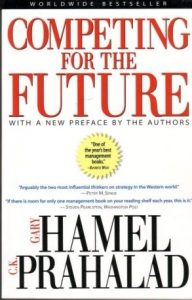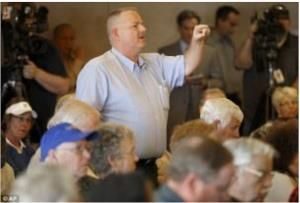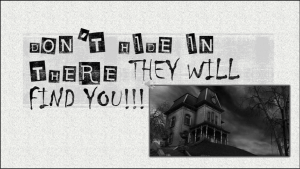
“A cynic,” Oscar Wilde once wrote, is someone “who knows the price of everything but the value of nothing.”
That may offend electric and gas company officials with budgetary responsibilities. Since resources are not unlimited, someone has the (often thankless) task of deciding what will be funded and what won’t. Wilde’s comment may sting, but like many of his observations, this one contains a large kernel of eternal truth.
Budget Battles Inside Utilities
As a general rule, companies fund what they value, and don’t fund what they don’t. At the end of the day, not funding a function is equivalent to saying it’s simply not essential or at least not important enough to receive funding.
I don’t propose to substitute my judgment, or Wilde’s, for that of electric and gas leaders. I can’t possibly know as much about their operational challenges or budget dilemmas as they do. And I don’t want to engage in budget-shaming. But I have seen the consequences when electric and gas companies under-fund communications and marketing. So I hope this post will be taken as more of an early warning than a scolding.
Today’s budget environment inside electric and gas companies is extraordinarily difficult. Cyber security, infrastructure construction and system upgrades are jockeying with everyone else for slices of the limited budget pie.
I don’t advocate a spending binge on communications or marketing for all utilities at all times. But there are consequences to under-funding those functions. In more than a few cases, I have been asked to help electric and gas companies recover from under-investment in communications and marketing.
Wilde’s Words Still True
Energy company communicators and marketers, and their managers, and their directors, and their vice presidents, should ponder the truth of Wilde’s quip, written at the end of the 19th century. It remains absolutely true as we find ourselves lumbering through the 21st century.
What Wilde wrote in 1892 remains broadly applicable to a wide variety of industries and institutions. But I find it particularly applicable to energy companies, especially companies providing electricity or natural gas.
As electric and gas executives confront a seemingly unending stream of strategic changes that they can’t control — like mergers, new regulations, customer preferences and new technologies — it’s perfectly understandable that executives would focus on the things they can control, including costs and organizational culture.

That makes sense. After all, electricity and gas providers can’t control the weather (which affects customer usage, which in turn affects revenue and, often, profitability). They can’t control fuel prices, a critical input to the price of their service. They can’t compel employee commitment. And they certainly can’t control customer preferences or new technologies, like the Google Nest learning thermostat (right) or rooftop solar systems.
So yes, leaders should, in fact, focus on things they can control. Like their investment decisions.
PwC: Costs are Investments, Not Expenses
In the recently published book, Strategy that Works, consultants at PricewaterhouseCoopers urged executives not to automatically consider “costs” as “expenses.” Rather, PwC said, costs should be viewed as investments. Like all investments, some have a higher or nearer term payoff while others don’t work out.
But by viewing costs exclusively as “expenses,” leaders focus only on the dollars going out the door. In tough budget times, expenses get cut. Categorizing costs solely as expenses precludes thinking about what could be gained (or what future outlays could be prevented) by an investment. Words matter!
Put another way: Would you spend $100,000 today to reduce the chance you’ll have to spend $5 million cleaning up a PR mess in the future? That’s the way a risk manager would think. Investing in communications or marketing to strengthen a utility’s good standing with the public is a lot easier, and cheaper, than trying to recover your reputation when something goes south.
Communications tip of the month: Utilities that under-fund the communications and marketing functions engage in strategic risk creation. Invest wisely today so you won’t have to invest heavily tomorrow.

In their classic book on corporate strategy, Competing for the Future, excerpted in Harvard Business Review, Gary Hamel and C.K. Prahalad cite case after case showing that successful companies don’t cost-cut their way to success. Successful companies, in fact, invest in hard-to-duplicate competencies that fortify their strategic position. That requires investments and discipline. Even companies that stake their survival on cost leadership, like WalMart, can only get there because they make strategic investment decisions. WalMart’s global leadership in logistics is built on a multi-decade investment in supply chain management. It didn’t just happen, and it didn’t happen overnight.

I thought about this last month when I was stuck on a United flight at Chicago’s O’Hare Airport. I was on my way home after co-leading a workshop on communications for publicly owned utilities. A lot of the workshop was devoted to discussing why communications and marketing were essential activities for all utilities, but particularly for locally owned utilities like them. For publicly owned utilities, the communications function is as vital as the investor relations function at a shareholder-owned utility.
Managing Strategic Risks with Communications & Marketing
Why should utilities consider increasing their investment in communications and marketing? Here, in a slightly different form, is what I told the utilities at the workshop.
- Help maintain local control: Nearly all locally owned utilities, including public power utilities, electric cooperatives, joint-action agencies, municipal utilities and public utility districts, will fight and die on the hill marked, “Local Control.” Local control is something that’s easy to lose sight of if you’ve exercised it for 50, or 75, or 100 years. You start to take it for granted. You may take your eye off the ball. And before you know it, the next-door shareholder-owned utility shows up with an unsought purchase plan and a very tempting check.
- Improve CSAT scores: The annual J.D. Power and Associates survey of residential utility customer satisfaction has shown, time and again, that electric and gas providers that communicate frequently and effectively with their customers have higher customer satisfaction (CSAT) scores than providers who communicate infrequently or ineffectively. CSAT remains an important metric for utilities.

- Manage risks: “Risk” is the big boogeyman in Corporate America today, something utilities (and all businesses) want to protect themselves and their customers from. Risk comes in all shapes and sizes, of course. But one broad category of risks, customer/member disenchantment, is directly managed through communications and marketing.
- Increase customer participation in programs: How will you develop energy-saving programs and enroll customers in those programs — which regulators are increasingly mandating — without marketers?
 Protect and manage your brand: “Reputational risk” is one of the newer risks being recognized by corporate leaders. Ask Wells Fargo about it. Or Samsung. Or Volkswagen. Yes, when you do bad things, and you get caught, your company’s reputation takes a beating. That can cost your shareholders big time, and it could lead to turnover in the executive suite or an unwanted takeover offer.
Protect and manage your brand: “Reputational risk” is one of the newer risks being recognized by corporate leaders. Ask Wells Fargo about it. Or Samsung. Or Volkswagen. Yes, when you do bad things, and you get caught, your company’s reputation takes a beating. That can cost your shareholders big time, and it could lead to turnover in the executive suite or an unwanted takeover offer.
- Inform & protect your customers: More and more utilities are warning their customers about scams, sometimes repeatedly. That, obviously, is the purview of the communications department. The communications I have seen, though, are largely episodic, driven by increased reports that scammers are active in a utility’s service area. How about a broader consumer protection communication initiative from utilities, cautioning their customers about cyber threats and other digital risks in addition to payment scams?
- Customers expect to hear from their utilities, especially in uncertain times: Another obvious statement, but one that bears repeating. Neighborhoods across the country have seen a surge of interest in rooftop solar, often sold on a door-to-door Some utilities, including Roseville Electric (a client), have taken a strong, proactive stance in favor of educating customers about rooftop solar as one of several options customers could investigate to potentially lower their bills and shrink their carbon footprint. The role of a trusted energy advisor has to be earned and renewed. Faced with fast-talking doorstop sell jobs on rooftop solar, are utilities actively and proactively taking a leadership role in educating their customers?
So yes, a lot of what Oscar Wilde wrote shortly after Thomas Edison discovered electricity remains highly applicable today. Right about then, the captain came on the intercom and said our flight was cleared for departure. Over the next few hours, as our flight traversed the Midwest and Plains states, I periodically looked out the window and wondered how many of the utilities below us saw communications and marketing the way I did, as a vital function worth investing in.
Crisis Communications — Lessons Learned from Middleborough Gas & Electric
 Sandy Richter, communications manager for Middleborough Gas & Electric, a locally owned gas and electric utility south of Boston, shares her presentation from a few years back on how she handled a crisis that erupted at her utility. This utility’s PR crisis started with an internal spat between the general manager and the treasurer over investment practices. This resource is absolutely indispensable for utility communicators eager to get some perspective on PR crises.
Sandy Richter, communications manager for Middleborough Gas & Electric, a locally owned gas and electric utility south of Boston, shares her presentation from a few years back on how she handled a crisis that erupted at her utility. This utility’s PR crisis started with an internal spat between the general manager and the treasurer over investment practices. This resource is absolutely indispensable for utility communicators eager to get some perspective on PR crises.

